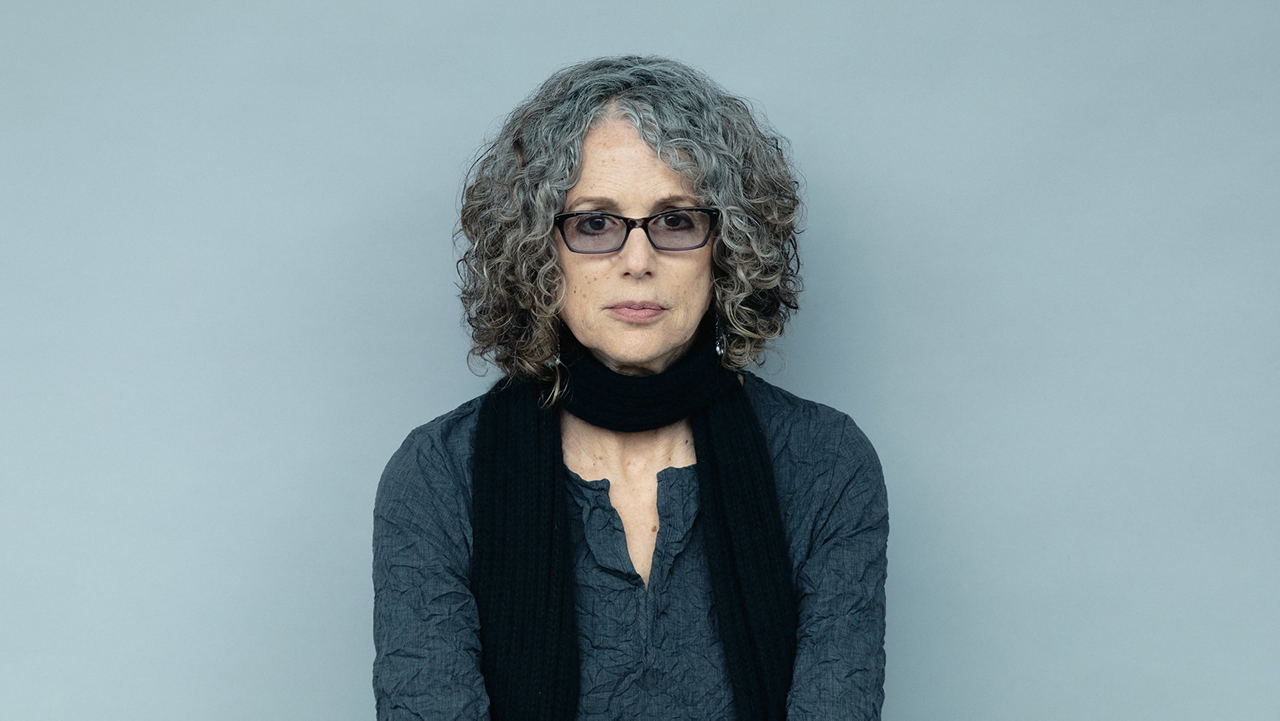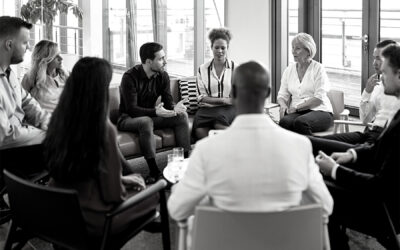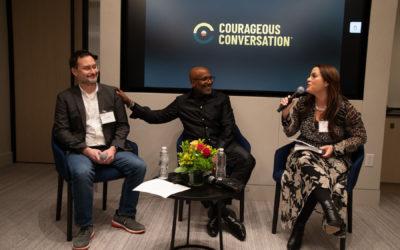By Daniel Bergner—July 15, 2020
In early June, Robin DiAngelo addressed 184 Democratic members of Congress who had gathered, by conference call, for what the party leadership had named a “Democratic Caucus family discussion on race.” It was 10 days after a Minneapolis police officer killed George Floyd. Nancy Pelosi, the speaker of the House, gave introductory remarks, and soon DiAngelo began. “For all the white people listening right now, thinking I am not talking to you,” she had a message: “I am looking directly in your eyes and saying, ‘It is you.’” She cautioned the white officeholders not to think that because they marched in the 1960s, or served a diverse district, or had a Black roommate in college, they were exempt from self-examination. Until they reckoned with the question of “what does it mean to be white,” they would “continue to enact policies and practices — intentionally or not — that hurt and limit” Black lives.
The invitation to speak to the caucus was just one in a deluge for DiAngelo. Before Floyd’s killing, she was a leading figure in the field of antiracism training or, as she sometimes describes it, antiracism consciousness raising. It’s a field shared by nonwhite and white trainers, and DiAngelo, who is 63 and white, with graying corkscrew curls framing delicate features, had won the admiration of Black activist intellectuals like Ibram X. Kendi, author of “How to Be an Antiracist,” who praises the “unapologetic critique” of her presentations, her apparent indifference to “the feelings of the white people in the room.” In 2018, when she published her manifesto, “White Fragility: Why It’s So Hard for White People to Talk About Racism,” Michael Eric Dyson provided the foreword. She is “wise and withering,” he wrote, “in her relentless assault on what Langston Hughes termed ‘the ways of white folks.’” “White Fragility” leapt onto the New York Times nonfiction best-seller list, and next came a stream of bookings for public lectures and, mostly, private workshops and speeches given to school faculties and government agencies and university administrations and companies like Microsoft and Google and W.L. Gore & Associates, the maker of Gore-Tex.
But as prominent as DiAngelo was then, she has become, since Floyd’s death, a phenomenon. As outraged protesters rose up across the country, “White Fragility” became Amazon’s No. 1 selling book, beating out even the bankable escapism of the latest “Hunger Games” installment. The book’s small publisher, Beacon Press, had trouble printing fast enough to meet demand; 1.6 million copies, in one form or other, have been sold. And as countless companies and institutions put out statements denouncing racism and expressing solidarity with the Black Lives Matter movement and committing themselves to inclusivity, DiAngelo’s inbox was flooded with urgent emails: requests to deliver (virtually because of the pandemic) workshops and keynotes at Amazon, Nike, Under Armour, Goldman Sachs. The entreaties went on: Facebook, CVS, American Express, Netflix.
Corporate desperation was matched by unrestrained media enthusiasm. Jimmy Fallon had DiAngelo as a guest on “The Tonight Show” in mid-June and commented, “Wow … wow,” as she spoke, and CNN chose to intersperse a repeated close-up of DiAngelo’s white face — and her instructions to white people on how to begin to battle their racism — with a montage from the protests. Instagram bore tens of thousands of posts about “White Fragility,” a great many of them pictures taken by white readers, with the book as part of a tableau, lying just so on an impeccably ironed bedspread or on a burnished wooden tray between a votive candle and a cup of tea, as if to advertise serenity along with righteousness. Some posts, though, took a different tone: “To be unpicking my privilege, my supremacy, my colonized mind. That’s tough enough. But to be faced with blank looks from fellow whites. That’s the real rusty razor to the carotid artery.”
The surge of attention, DiAngelo told me, made her at once leery and hopeful. She worried that the posts were “performative,” the book “just a badge.” Yet, she said, “there’s a sense of scales falling from people’s eyes,” mostly because of the killings of Floyd and, before that, Ahmaud Arbery and Breonna Taylor, but also, she believed, because of the work she and her antiracism colleagues have been doing. She felt a similar mix about the ASAP emails from corporations. “The very urgency itself says you don’t have a very deep understanding of how hard this work is, and how long it takes and how ongoing it needs to be,” she said. “Racism is not going to go away by August, so how about we do it in August?”
I’d been talking with DiAngelo for a year when Floyd was killed, and with other antiracism teachers for almost as long. Demand has recently spiked throughout the field, though the clamor had already been building, particularly since the election of Donald Trump. Glenn E. Singleton, a Black trainer whose firm, Courageous Conversation, has been giving workshops for over two decades, saw a 105 percent rise in business between November 2016 and February 2020. Bookings plummeted because of Covid-19, and then, with the Floyd protests, he said, he experienced “extraordinary” demand. Darnisa Amante-Jackson, another important Black voice in the sector, started the Disruptive Equity Education Project four years ago and was hired by school districts and charter-school networks in 15 states. She is now receiving a new level of interest, especially from corporations “eager,” she said in June, “to be authentic to the B.L.M. messaging they’re putting out.” As their teaching becomes more and more widespread, antiracism educators are shaping the language that gets spoken — and the lessons being learned — about race in America.
Read more at The New York Times Magazine.




